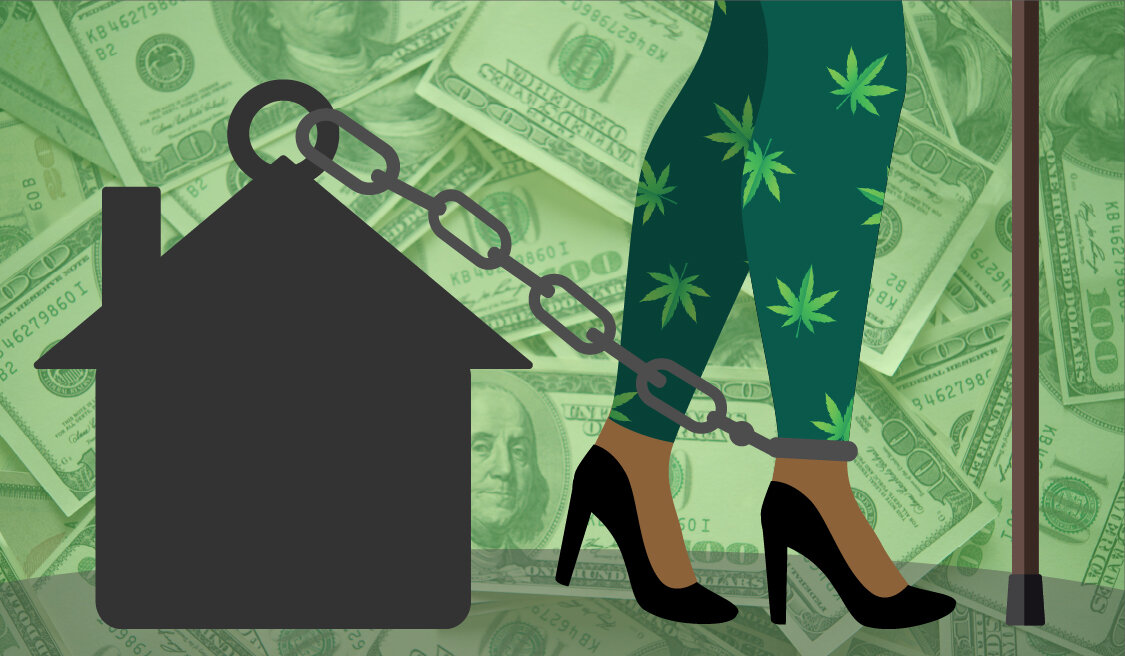A sentencing memorandum was filed last week for former delegate Cheryl Glenn, who was charged and pleaded guilty to accepting over $30,000 in bribes related in part, to medicinal cannabis companies, shows that prosecutors are asking for three years in federal prison. Glenn, who is 69 years old, is asking for home detention instead, with her lawyer arguing that due to Covid-19 she should not be incarcerated—an argument that applies to every person incarcerated, not just elected officials.
Glenn first took a $3,000 bribe in return for promising to ensure the passage of the Natalie M. LaPrade Medical Cannabis Commission Reform Act, which increased the number of cannabis licenses in Maryland from 15 to 22, in response to the fact that the initial 15 licenses were all awarded to white business owners. The second bribe Glenn received was for $5,000 for the promise that she would push legislation that would increase the chances that a certain cannabis company would receive a license. Additional bribes were for a bill Glenn introduced that would lower the required number of years of experience needed to run an opioid clinic ($5,000), and two other bribes adding up to $15,000 were related to legislation regarding liquor licenses.
The memorandum argues that Glenn was “a politician at the height of her powers” who “was motivated by the desire to possess more than she deserved” when she entered in this bribery scheme. It also stressed that Glenn’s mother is Natalie M. LaPrade, the namesake of the Natalie M. LaPrade Maryland Medicinal Cannabis Commission. It also makes reference to a “stunning arrogant statement” Glenn made where she boasted that she was able to get a license for a medicinal cannabis company. Glenn claimed that other applicants asked, “Who the hell do they know?” to which Glenn explained, “They know God and Cheryl Glenn,” Glenn explained.
The memorandum goes on to say, “if one were writing a novel or a screenplay about a corrupt politician that would be the kind of dialogue a good writer might craft. Except that Cheryl Glenn actually said that in an unscripted moment when she thought the only people listening were Associate 1 and Businessperson 3.”
Additionally, Glenn attempted to downplay her involvement in the scheme when she was confronted by prosecutors on February 11, 2019, and had in fact, received a bribe of $15,000 that same day.
Most devastating, the memorandum quotes what Glenn herself said back in 2017 when another elected official got in trouble for ethics violations related to medicinal cannabis. In 2017, then-Baltimore County Delegate Dan Morhaim was reprimanded because he did not disclose his connection to a medicinal cannabis company even as he helped conceptualize what medicinal cannabis in Maryland would look like. Talking to the Baltimore Sun in 2017, Glenn mocked Morhaim and his defenders’ attempts to downplay the ethical violation.
“He didn’t do anything wrong? Oh, please,” Glenn told the Sun. “It’s incredulous that all he’s getting is a slap on the wrist. … He definitely has used the power of his position as a legislator. Would Doctor’s Orders have been interested in forming a financial relationship with him if he wasn’t a lawmaker?”
“And now,” the memorandum argues. “Delegate Glenn is asking for a slap on the wrist for conduct that is far worse than failing to adequately disclose a business relationship.”
Glenn will be sentenced on July 29.
Glenn’s guilty plea (and confirmation she was cooperating with the federal government) along with the indictment of Lance Lucas in March, continue to complicate Maryland’s medical cannabis industry, which attempts to navigate ongoing issues of racial equity, all the while worrying about more corruption being exposed. On July 27, the Maryland Medical Cannabis Commission closed its fairly small window for comment (announced on July 16) for Thursday, July 30’s Policy Committee Meeting. That meeting held online at 2 p.m. will discuss “Diversity in the Medical Cannabis Industry,” as well as “Operation of a Medical Cannabis Grower at More than One Premises,” Covid-19, and the scheduling of fines.
Illustration by Kathy Wyche.




